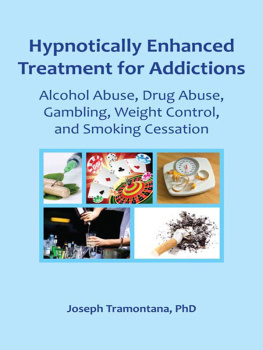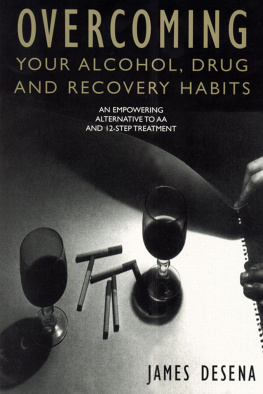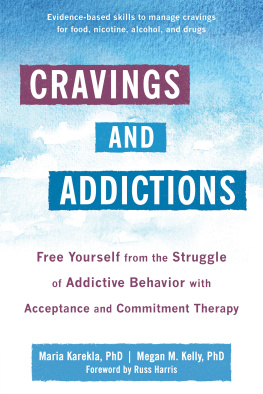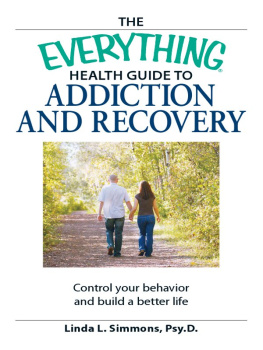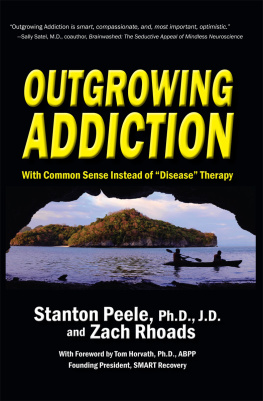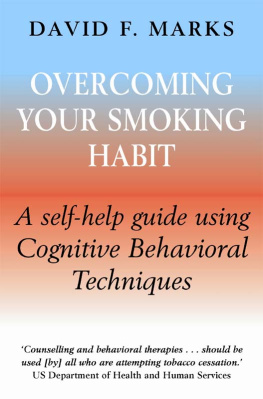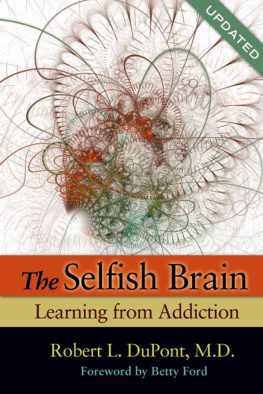Cognitive Behavioral Therapy for Overcoming Bad Habits
Easy Strategies of CBT for quitting three big addictions including smoking, alcohol addiction and internet addiction
By
Sebastian Loxely
Copyright 2020 by Sebastian Loxely- All rights reserved.
This document is geared towards providing exact and reliable information in regards to the topic and issue covered. The publication is sold with the idea that the publisher is not required to render accounting, officially permitted, or otherwise, qualified services. If advice is necessary, legal or professional, a practiced individual in the profession should be ordered.
From a Declaration of Principles which was accepted and approved equally by a Committee of the American Bar Association and a Committee of Publishers and Associations.
In no way is it legal to reproduce, duplicate, or transmit any part of this document in either electronic means or in printed format. Recording of this publication is strictly prohibited and any storage of this document is not allowed unless with written permission from the publisher. All rights reserved.
The information provided herein is stated to be truthful and consistent, in that any liability, in terms of inattention or otherwise, by any usage or abuse of any policies, processes, or directions contained within is the solitary and utter responsibility of the recipient reader. Under no circumstances will any legal responsibility or blame be held against the publisher for any reparation, damages, or monetary loss due to the information herein, either directly or indirectly.
Respective authors own all copyrights not held by the publisher.
The information herein is offered for informational purposes solely, and is universal as so. The presentation of the information is without contract or any type of guarantee assurance.
The trademarks that are used are without any consent, and the publication of the trademark is without permission or backing by the trademark owner. All trademarks and brands within this book are for clarifying purposes only and are owned by the owners themselves, not affiliated with this document .
Table of contents
Introduction
It requires a conscientious, concerted effort to alter our habitual courses of behavior, and that, of course, takes resources. For example, for years, to get to work, we may have been used to taking the same exit off the highway every day, but then there's a shift in our workplace that causes us to take a different door. Unless we pay special attention to where we are and what we do and redirect our actions purposefully, it's easy to find ourselves exiting "out of habit" on the old ramp. We have to remain reasonably attentive and self-directed for a while to develop a new habit consistently.
Even after our new route has become reasonably familiar on its own, there is still a risk that we will unintentionally take the old exit from time to time, especially during periods when we are not particularly alert, or our minds are occupied with something other than where we are going. Old habits are undoubtedly challenging to retire fully once created. Even after we have set our minds on a new course, the possibility of returning to the old ways is always there.
Suppose there is something we know for sure from years of study in behavioral science. In that case, enhancing a pattern, i.e., associating the way with a favorable result or "reward" of some kind, increases the possibility that it will recur. We also understand that withdrawing reinforcement from a behavior makes it more likely over time that it will decrease. So, when I work with customers to change old, natural, and problematic habits of thinking, attitudes, or behaviors, I often encourage them to make it a priority to give themselves some constructive strokes for the efforts they make to be more conscious of their thoughts and actions and change them.
I've found that merely being conscious of or changing a dysfunctional view or activity is not enough. For purposely changing direction, it is also essential to consider and reward oneself. This recognition and reinforcement go a long way to helping a person over the long term to maintain short-term gains. Of course, it is more likely that temptations to return to old patterns will decrease due to the lack of encouragement inherently conferred on the old destructive habits.
There are countless other ways to take the incentives out of old, destructive habits, in addition to solely mental self-recognition and encouragement, and to make sure there are enough incentives for intentionally participating in more adaptive behaviors. It can make all the difference between moving firmly in a healthy new direction and struggling with persistent "relapses" to put the right incentive system in place.
Cognitive-Behavioral therapy tells us that it is inextricably intertwined with how we think about problems and how we act. Just as our conduct is influenced by our attitudes and thought habits, the ways we serve and those actions affect how we think about things. Yet well-versed therapists in cognitive-behavioral therapeutic methods all too often neglect this and excessively concentrate their energies on modifying cognitions instead of behavior.
When we behave out of habit, we don't usually overthink. But we necessarily become more conscious when we consciously redirect our actions, even briefly. Initially, this takes some energy, but the long-term "payoffs" are immense. In a whole new way, we start looking at stuff and come to new perspectives and conclusions about the world around us and how to deal with its stressors. And if accomplishing all that isn't worth an internal pat on the back, I'm not sure what is. This book covers main strategies for how we can quit addictions like smoking addiction and internet addiction.
Chapter 1: CBT And How to Change Habits With CBT
Cognitive-behavioral therapy (CBT) is a form of psychological treatment that has been proven to be effective with a variety of issues, including depression, anxiety disorders, problems with alcohol and substance use, marital problems, eating disorders, and severe mental illness. Several research findings indicate that CBT leads to substantial changes in efficiency and quality of life. CBT is as successful as, or more effective than, other types of psychological treatment or psychiatric drugs in several studies.
It is important to stress that progress has been made in CBT based on both research and clinical practice. Indeed, CBT is a point of view for which there is sufficient scientific evidence that progress is created by the methods that have been developed. CBT varies from many other types of psychiatric therapy in this way.
Several vital concepts are underlying CBT, including:
In part, psychological problems are based on defective or unhelpful ways of thinking. In part, psychological problems are based on learned habits of unhelpful behavior. People with psychological issues may learn new ways to deal with them, thus alleviating their symptoms and becoming more successful in their lives.
Habits may be useful or unhelpful. A behavior, such as reaching for a cigarette, is challenging to break because the brain establishes associations with that action, and there is a reinforcement to participate in it. For example, if you are inclined to smoke a cigarette every time you go outside, you will immediately reach for a cigarette while you are in the fresh air. You are more likely to carry on to smoking to obtain relief if you feel relief when smoking a cigarette.
If you remain attentive to the actions, breaking a habit is difficult to do. To replace the negative story, think of new, positive action. Try to reach for a glass of water instead of a cigarette, for example. Then repeat the positive behavior until it becomes second nature if you feel a need to smoke. If replicated enough, the negative pattern of your subconscious will be replaced by a positive one.


